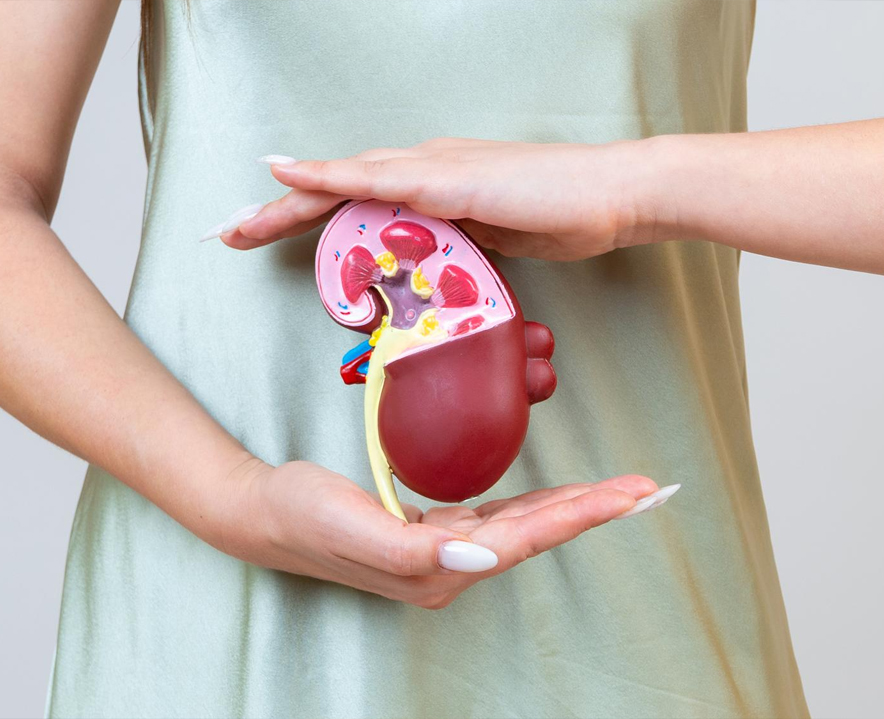Have you thought about how important your kidneys are to preserving your body’s harmony? These bean-shaped organs work in the background, filtering waste and controlling fluid balance. The nephrology preventative tips play a vital role in maintaining kidney health, avoiding probable renal disorders, and ensuring overall well-being. Let’s study preventive
nephrology, finding vital tips for keeping our kidneys healthy and protecting our overall health.
Why are nephrology preventative tips necessary to protect kidney health?
Maintaining kidney health is critical for your overall health, and maintaining a healthy lifestyle is helpful in the prevention of chronic kidney issues. Here are some reasons why preventive nephrology tips are required:
- Managing Chronic Kidney Disease (CKD): Preventive measures can assist patients in managing risk factors such as high blood pressure, diabetes, and obesity, all of which contribute to the progressive development of renal issues such as CKD.
- Blood Pressure and Diabetes Management: Hypertension and diabetes are key causes of kidney disease, which can be managed by following a balanced diet, exercising regularly, and monitoring blood pressure and sugar levels.
- Preliminary detection of potential kidney diseases: Regular health check-ups and screenings are crucial for detecting kidney issues early and addressing any signs of kidney dysfunction promptly, promoting preventative nephrology measures.
- Minimize the demand for expensive kidney treatments: Preventative nephrology lowers healthcare costs by preventing advanced kidney disorders that demand costly procedures, easing the burden on healthcare systems.
- Improving Quality of Life: Preventative actions for kidney health boost general health and well-being by managing fluid balance, electrolytes, and waste removal.
- Keeping Nephrotoxic Substances at Bay: Being aware of potential nephrotoxic compounds and taking care to limit exposure helps safeguard kidney function.
Tips for maintaining a Kidney health:
- Regular Check-ups: Routinely monitoring parameters such as blood pressure, blood sugar, and kidney function allows you to make proactive efforts toward kidney
- Quitting smoking: Quitting smoking is an effective method to improve kidney
- Continual Exercise: Exercise benefits kidney function in addition to cardiovascular Regular physical activity helps control blood pressure, enhance circulation, and help you maintain a healthy weight, all of which help maintain kidney function.
- Monitoring Blood Pressure: Regular monitoring and lifestyle adjustments, such as a low-sodium diet and regular exercise, can help prevent kidney damage caused by
- Dietary Nutrition: A nutritious diet that includes fruits, vegetables, whole grains, and lean meats is necessary for kidney health while limiting sodium and junk food helps maintain suitable blood pressure
- Hydration: Staying hydrated is crucial for kidney health, as it aids in removing toxins, preventing kidney stones, and promoting optimal function.
- Avoid excessive use of painkillers: particularly pain relievers, can affect the kidneys, so it’s critical to stick to suggested dosages and speak with a doctor.
- Manage Sugar Level: While you have diabetes, work together with your nephrology doctors to keep your blood sugar levels under control. Uncontrolled diabetes can harm the
- Minimize NSAID use: If used extensively, nonsteroidal anti-inflammatory medications (NSAIDs) such as ibuprofen might affect the kidneys. Before using them regularly, see your nephrology doctors.
- Minimize alcohol consumption: Consuming excessive amounts of alcohol can be harmful to the If you prefer to consume alcohol, do it in moderation.
- Minimize phosphorus consumption: Patients with kidney disease should limit their consumption of phosphorus-rich foods and check their phosphorus intake, as high amounts can cause kidney damage.
Bottomline:
Our kidneys, the hidden heroes of our body, demand our undivided attention. Preventative nephrology practices like hydration, balanced eating, blood pressure management, exercise, medication usage, smoking cessation, and regular check-ups promote kidney health and long- term nephron tenacity.








